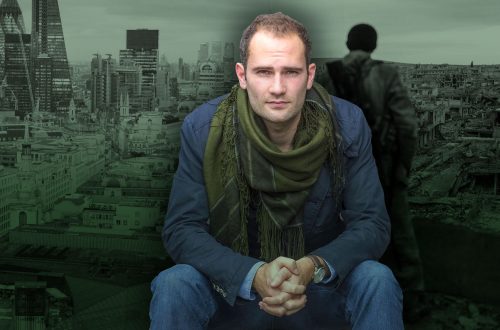In late 2007, Samina Malik was convicted of possessing terrorist material. She received a nine-month suspended sentence.
The terrorist material in question was a large library of “How To” jihadist manuals. Her defence, that she had an innocent interest in the material, was rebutted by the fact that she had written doggerel fantasies about decapitaing infidels, which showed a very keen interest in the ideology of jihadism.
Legal restrictions meant that, at the time of her conviction, it was not reported that Malik had been in email contact with a man called Sohail Qureshi who was arrested at Heathrow airport, about to board a flight to Pakistan, while carrying material which he intended to use while committing acts of terrorism.
The absence of Qureshi from the narrative meant that it was possible for Malik’s supporters, and those who wish to create the false impression that muslims in the United Kingdom, are subject to arbitrary arrest and capricious prosecution, to argue that she had been arrested for no more than a “thought crime”, or for “writing poetry”.
Malik was portrayed as a kind of goth-in-a-hijab, with a morbid but harmless fascination with death.
In fact, she was more Ian Stuart Donaldson than Sylvia Plath.
Qureshi has now pleaded guilty to preparing to commit terrorist activity and possessing items of use to terrorists, including £9,000 cash and a night vision scope, and computer material for terrorist purposes:
The 29-year-old was in email contact with Samina Malik, the ‘lyrical terrorist’ convicted in November of storing a library of material for terrorism.
Malik, who worked for WH Smith at Heathrow’s Terminal Four, wrote poems about her desire for martyrdom and beheading unbelievers but was given a suspended jail sentence.
Qureshi asked her in an email: “Sis, I hope you get this email before anyone else. What is the system like at work? Is the checking still very harsh or have things calmed down a bit?”
Qureshi planned to fly to Islamabad for a “two- to three-week operation” either in Pakistan, Afghanistan or Waziristan, the prosecution told the Old Bailey.
The court heard that police intercepted internet traffic in which Qureshi wrote: “Pray that I kill many, brother. Revenge, revenge, revenge.”
Fortunately, Qureshi’s plans were thwarted before he completed his mission. Nobody died.
So, that is the context within which Malik was arrested. Fortunately for her, the prosecution could not prove that the computer material which Qureshi was taking to Pakistan came from Malik. It is possible, even, that her association with, and general encouragement of, Qureshi and his jihadist politics, was unconnected to Qureshi’s specific plans to go to Pakistan to commit murderous acts of terrorism. This sort of evidence is not easy to obtain. In many similar cases, the best evidence for this sort of conspiracy comes from phone intercepts, which are not admissible in court cases. We do know that Malik and Qureshi were talking about Heathrow security, and were worried about their communications being intercepted. Perhaps they were just flirting.
Therefore, Malik was convicted of the lesser offence of “possession” of the material.
I think she should consider herself very very lucky.
UPDATE
This, according to the BBC, was the question which led to the so-called Lyrical Terrorist’s arrest:
“Sis, I hope you get this email before anyone else. Is the checking still very harsh? Or have things cooled down a bit – Delete after read!
Here was her answer:
Malik replied at 4am detailing the security measures, including searching of shoes and checks on liquids. She signed off with a nom de guerre and the line, “A stranger awaiting martyrdom.”
Samina Malik actively assisted a terrorist who was going to commit acts of terrorist murder.
This was not an innocent exchange.
I would like to know why Samina Malik was so dramatically under-charged.
Here are a few of the things that columnists, politicians and activists said in the wake of Samina Malik’s conviction.
Samina Malik is a young poet who writes under the pen name The Lyrical Terrorist. She was arrested and charged under the new anti-terror law of possessing items “likely to be useful to a person committing or preparing an act of terrorism” (Report, December 6). She has now been given a nine-month suspended sentence. Her poetry, found on her computer, was central to the conviction.
Should a person’s interests, emotions and opinions be used as evidence to convict them in front of a court? The answer would seem to be yes if they are young, working-class and Muslim. Christopher Hitchens recently defended Martin Amis of racist attacks on Muslims (G2, November 21), saying “the harshness Amis was canvassing was not in the least a recommendation, but rather an experiment in the limits of permissible thought”.
In Britain today, is the right to “experiment with the limits of permissible thought” only accorded to people who have the correct skin colour, religion and academic background?Iain Banks, Caryl Churchill, Lindsey German, Michael Kustow, Adrian Mitchell, Andrew Murray, John Pilger, Michael Rosen
I’ve written the odd, angsty poem in pursuit of the opposite sex. If my diet of kung fu films counts, I have watched the occasional beheading. I also have a close acquaintance with the firing mechanism of a pistol, as my expired South African firearm licence attests. On the face of it then, I have much in common with Samina Malik, who last week became the first woman in Britain to be found guilty under the new terrorism act.
Noorjehan Barmania, The Guardian
But because Samina Malik is hardly someone that most British people could sympathise with, it is fatally easy for her rights to free expression to be downgraded.
Natasha Walter, The Guardian
It has been widely stated that Malik’s worst crimes are against prosody; that her posturing is a function of suburban adolescence rather than radical jihad; and that white teenagers in the United Kingdom have been proclaiming similarly nihilistic desires for decades, only to shuffle into mortgage slavery as soon as they leave adolescence
Jonathan Heawood, International PEN, The Guardian
Malik’s work amounted to alyrical glorification of terrorist violence, including beheading infidels. It was no earthly use to any real terrorist but could be argued to have been potentially encouraging of a culture of admiration for Islamist terrorism. Frankly some of my Times columns could be misunderstood in this way.
Matthew Parris, The Times
During her trial, Malik argued that she was not a terrorist and that she had chosen the online moniker “Lyrical terrorist” simply because it had “sounded cool” and that her poetry, online remarks and downloading of internet material was undertaken in an attempt to attract male admirers.
Her story is quite plausible and I am sure there must be many more like her.Inayat Bunglawala, Muslim Council of Britain, The Guardian
Many young people download objectionable material from the Internet, but it seems that if you are a Muslim, then this could lead to terrorist charges, even if you have absolutely no intention to do harm to anyone else.
Dr Abdul Bari, Muslim Council of Britain
Idiots.
Strangely enough, the Muslim Council of Britain doesn’t have anything at all to say on the conviction of this dangerous terrorist, and the role of Ms Malik in his terrorist plot. I’d have thought they’d be leaping over themselves to express their relief at the thwarting of this terrorist’s plans to engage in slaughter in South Asia. But, no, nothing to say at all! Yet.
However, they do have a banner for the Muslim Brotherhood PR campaign, “Islam is Peace”, so I expect this will have to do.


